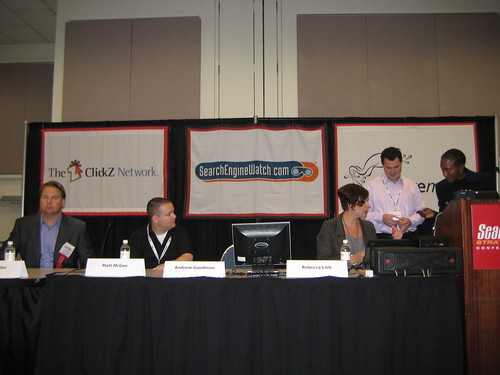 As posted by: Wall Street Journal
As posted by: Wall Street JournalMore than half of U.S. consumers plan to cut back on purchases of high-tech products this year, according to a survey that adds to clouds hanging over two big trade shows this week.
The findings by Forrester Research, scheduled for release Monday, aren't surprising, given the litany of bad economic news since September. But the online survey of more than 5,000 American adults, conducted in November, provides some of the first specifics about spending choices that consumers are likely to make.
The findings are particularly gloomy for newer categories of devices. Some 66% of respondents, for example, said they were less likely to purchase satellite radios this year because of the sour economy, while 62% said they are less likely to buy a portable Global Positioning System navigation device. Even smart phones, a hot category lately, aren't immune: 63% of respondents said they are less likely to buy one.
More established categories of products also fared poorly. Sixty-two percent of those surveyed said they are less likely to buy a new videogame console, Forrester said.
As for personal computers, 45% of respondents said they have delayed plans to purchase new ones, though 40% said they hadn't changed their purchasing plans. Eighteen percent of respondents said they now plan to spend less money on a new system. Television sets fared a bit better, with 44% of respondents saying they haven't changed their plans to buy a new set.
"It's pretty grim," said Paul Jackson, a principal analyst with Forrester.
The findings from the Cambridge, Mass., firm are the latest in a series of ominous portents preceding Macworld and the Consumer Electronics Show. The trade shows -- in San Francisco and Las Vegas, respectively -- are expected to draw hundreds of exhibitors this week despite the tough economic environment.
While the downturn took hold too recently for companies to change plans for introducing products at the shows, many are sending fewer employees while laying plans for new tactics over the course of the year.
Companies such as Forrester and consulting firm Accenture are offering a number of recommendations, including developing fewer, more highly differentiated products and tailoring them to market segments and regions that are relatively recession-resistant.
"There are still some geographies that are performing well," said Marty Cole, chief executive of Accenture's communications and high-tech operating group. "You can't paint it with a broad brush."
Indeed, surveys point to a few signs of strength in the tech sector, particularly in services that consumers feel they can't do without. An Accenture survey found that only 3.7% of U.S. consumers are willing to stop using home Internet access, 8.7% are willing to give up mobile-phone service and just 9.6% are willing to stop using cable or satellite TV services.
Those findings echoed those of the Forrester survey about consumers' commitment to mainstream technology services. But not many people plan to add new services: 58% of respondents said they don't have a digital video recorder service and don't plan to add one, while 69% said they wouldn't add a video rental service akin to that offered by Netflix Inc., Forrester said.
"Indications are when it comes time for renewals, people may reduce their service packages," Mr. Jackson said. "That is a long-term danger that may be more keenly felt later."
Gadget makers and service providers can also take solace in signs that consumers will allocate more of their spending to home entertainment. Forrester said 52% of respondents expect to spend less on entertainment outside the home and 56% said they will spend less on eating out. About 58% said they will spend the same amount on entertainment in the home.
